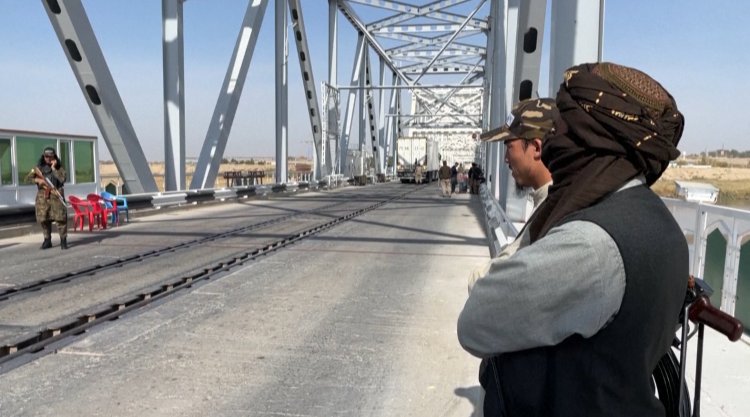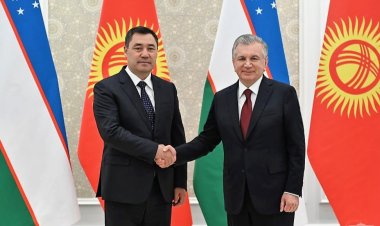Uzbek traders learn to do business with the Taliban

As lorries arrive in bursts of dust at a logistics hub in Uzbekistan's southern city of Termez, squatting drivers share complaints about how trade has suffered since the Taliban seized power next-door.
"Before, our journey there and back took three days, now we are there for a week," said Rafik Khujakov, an Uzbek who makes regular deliveries of beans to the Afghan city of Mazar-i-Sharif and brings back potatoes.
"Their people don't know how to work the computers!"
Khujakov said the Taliban had cracked down on border corruption, but companies and drivers were losing money because of lengthy delays.
"They check and recheck each other. It has become very difficult," he moaned, in a refrain echoed by several other traders at the hub.
More than two months after the Taliban seized power in Afghanistan, border traders in southern Uzbekistan are nevertheless discovering that it is possible -- if complicated -- to do business with the religious hardliners.
Landlocked Uzbekistan, which once hosted US-led coalition forces that toppled the Taliban, has taken a business-first approach to the group, as firms in the ex-Soviet Central Asian republic seek a path to ports in Pakistan and Iran.
Central to that effort is the Termez Cargo Centre, a logistics hub opened five years ago to coordinate cross-border trade, mainly to Mazar-i-Sharif 60 kilometres (40 miles) away in northern Afghanistan.















